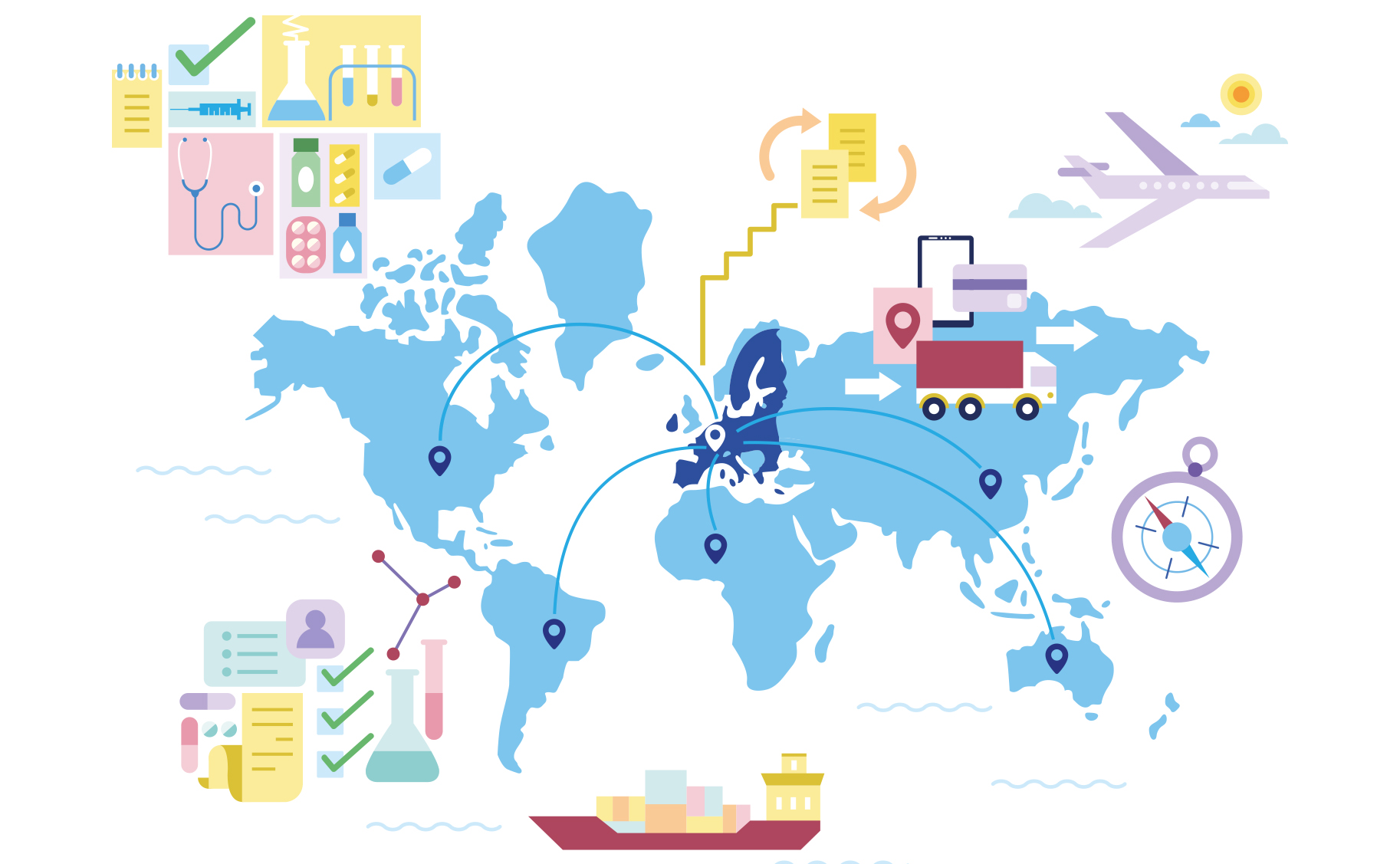Support Open and Ambitious Trade Policies
Trade has long been one of Europe’s strengths, enabling economic growth across the continent, building links with allies and partners across the world, and contributing to greater resilience in global downturns.
The innovative pharmaceutical industry is a key strategic sector of the European economy: Europe accounts for nearly 24% of world pharmaceutical sales, around 830,000 people in Europe are directly employed in the sector, and about three times more indirectly. With a long-standing manufacturing and export base across many EU Member States, the sector contributed 122 billion euros to the EU’s balance of trade in 2020. From a Pfizer viewpoint, Europe represents a key export hub, with over 60% of our medicines handled in Europe, supplying patients in over 170 countries.
For innovative pharmaceuticals, trade policy has been key to removing protectionist barriers, promoting effective regulations and fostering innovation through strong intellectual property (IP) protections. New issues, such as policies addressing digital trade, are increasingly important for the industry, reflecting the growing significance of global data flows to the discovery of new breakthrough medicines. Taken together, these policies enable continued investment in healthcare innovation, and support patient access to medicines.

Trade and the Pandemic
The pandemic has thrown many trade issues into sharper relief. As governments try to chart a path back toward normalcy, it is more important than ever that they support open, rules-based trade. Getting trade policy right means taking actions that support both resilient, diversified supply chains for critical and often life-saving medicines, and the innovation needed to develop them.
The EU’s leadership at the WTO will be critical to secure positive policy outcomes in the short- and long-term that address concrete trade challenges affecting pharmaceutical supply chains during the pandemic, while also supporting innovation and supply chain resilience over the long-term. Our industry has called on governments globally to drive for an ambitious set of outcomes on trade and health.
Trade and Health
In the short-term, industry has called for actions to boost trade in health products as well as the inputs and equipment required to develop and manufacture those products. What would this mean in practice? We see a critical role for governments to address specific impediments to medicines manufacturing and patient access by committing to:
- Refrain from export restrictions;
- Improve trade facilitation;
- Eliminate tariffs;
- Strengthen regulatory cooperation and capacity building.
This is about getting the fundamentals right: policies to facilitate the movement of medicines, vaccines and inputs to R&D facilities, factories or patients in need; avoiding imposing unnecessary costs when importing critical goods, inputs, or factory equipment; and enabling medicines regulators, customs and border authorities, and other policy-makers to act in an agile manner, wherever they are.

Trade and Innovation
Underpinned by WTO rules, intellectual property is the foundation for the research and innovation that has enabled the collaboration, discovery and development of new vaccines and treatments. As explored in other blogs, IP has been indispensable to quickly mobilise and devote the resources, technical knowledge and know-how that is required to combat the COVID-19 pandemic, and to facilitate the advancement of cutting edge technologies, such as mRNA vaccines.
The framework IP provides has also allowed for unprecedented co-operation in scaling up manufacturing – the Pfizer-BioNTech vaccine’s manufacturing network includes over 20 sites on four continents, while at industry level, over 300 collaboration agreements have been signed.
Policy recommendations
- Drive resilience and patient access by defending open trade and global supply chains, underpinned by a rules-based trading system and effective enforcement.
- Maintain Europe’s own strong IP protection and continue to advocate for effective IP globally, enabling innovation to flourish.
- Build on existing ties with key allies such as the US to eliminate regulatory barriers and promote bilateral trade, and seize major opportunities, such as free trade agreements (FTAs) in the Asia-Pacific region, to expand access to other markets.